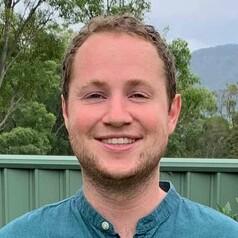
Diarmuid Hurley
Lecturer, Faculty of Health, Southern Cross University
Diarmuid Hurley is a lecturer in leadership in healthcare and sporting settings, based at Southern Cross University. He holds a PhD in Psychology and a Masters in Sport and Exercise Psychology. His research interests include sport, exercise, and performance psychology, health psychology, and novel methods of mental health promotion and prevention in communities.
Less ![]()
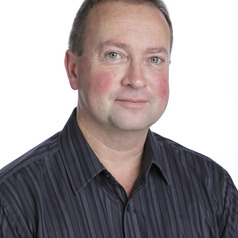
Diarmuid Scully
Lecturer in medieval history, University College Cork
Diarmuid Scully devised the first module on LGBT history to be taught in an Irish university in 2018, the 25th anniversary of the decriminalisation of homosexuality in the Republic.
The study of LGBT Irish identities on the island of Ireland is an emergent research area with huge potential. Modern Ireland, North and South, has seen many transformations, but few as dramatic as the change in the perception and status of LGBT people.
The module explores the experiences of LGBT people and the shaping of LGBT identities in Ireland from the 1970s to 2022 via activists’ testimonies, LGBT rights promotional materials, media reports, personal accounts, and creative productions including songs, poems and the visual arts. These sources are located and analysed in their historical contexts. The module also asks how, and to what extent, Irish LGBT issues have been analysed by historians.
My research interests focus on representations of Ireland, its inhabitants, and wonders in a wider archipelagic context in Antiquity, the Middle Ages, and the Early Modern era. I am interested in Classical ideas concerning Britain, Ireland, and their surrounding seas, and the shaping of those ideas by Graeco-Roman world-geographical and ethnographical thought and the demands of Roman imperialism. The analysis of the long-term legacy of these concepts, topoi, and stereotypes dominates my current research. I am investigating their transmission to the early Insular world and adaptation and subversion by Insular authorities, and the response of twelfth to seventeenth century English and other textual and visual sources to both Classical and early Insular interpretations of Irish and archipelagic history, culture, geography, and marvels.
My research interests converge in a monograph in preparation, The Bull of the Herd: Giraldus Cambrensis and the Invention of Barbarian Ireland. This is the first full-length study of Gerald of Wales's Irish writings since 1662. Gerald of Wales's Topography of Ireland (1188) dominated discourse on Ireland from the late 12th to the 17th centuries. I am examining the work in relation to the Classical and Early Insular sources as well as 12th century views of European peripheries, and considering its impact on Early Modern perceptions of Ireland.
Less ![]()

Diatyka Widya Permata Yasih
Diatyka is a lecturer at the Department of Sociology, Faculty of Social and Political Sciences, University of Indonesia. She is also an executive secretary and a research associate at Center for Sociological Studies, University of Indonesia. Her current research project is on young precarious workers who join vigilante groups in urban Jakarta.
Less ![]()

Dickson Kanakulya
Lecturer, Makerere University
Holds a Ph.D. (Makerere), Licentiate (Linköping), M.A. Philosophy (Bergen) and B.A. (Makerere).
Less ![]()
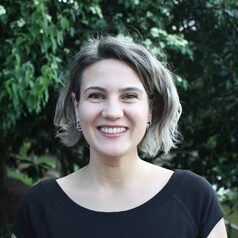
Didem Pehlivanoglu
Postdoctoral Researcher, Psychology, University of Florida
Dr. Didem Pehlivanoglu’s research interests involve investigating the role of emotionally and motivationally relevant information on cognition at basic and applied contexts, with a special focus on understanding the contributions of individual differences to cognition-emotion interactions. Her training background is on experimental aging research with focus on examination of cognitive and affective processes across adulthood by employing behavioral (self-report, behavior-based tasks), physiological (eye-tracking), and neuroimaging (EEG/ERP) techniques. Her current research in the Ebner lab focuses on identifying the cognitive, socioemotional, and neurobiological profiles of deception risk susceptibility in aging.
Less ![]()
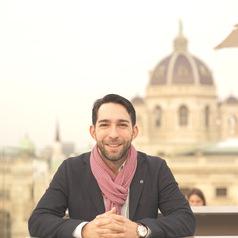
Diego Acosta
Director of the Global Chair Nebrija-Santander on Migration and Human Rights, at Nebrija University in Madrid, Professor in Law, University of Bristol
Diego Acosta is Professor of Migration and European Law at the University of Bristol, where he is also International Strategic Lead for the Migration and Mobilities Research Centre. He is also the Director of the Global Chair Nebrija-Santander on Migration and Human Rights at Nebrija University in Madrid.
Professor Acosta is the author of more than 60 publications. His latest monograph (Cambridge University Press, 2018) looks at the legal construction of the national and the foreigner in South America from independence in the early 19th century until today. His new project analyses free movement of people regimes globally, and he has obtained funding from the Open Society Foundations.
Professor Acosta has testified before the parliaments of Chile, Colombia, Ecuador, and Peru on migration law reform, and has advised numerous governments, international organisations, law firms, political parties and NGOs in the USA, Europe, Latin America, the Caribbean and Africa. He has produced the written observations for the applicant submitted to the European Court of Justice in several cases.
Less ![]()
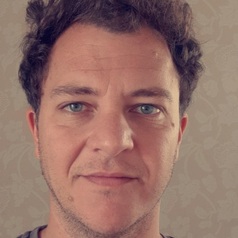
Diego De la Fuente Stevens
Lecturer at the Department of Economics, University of Sussex
Empirical economist
Less ![]()
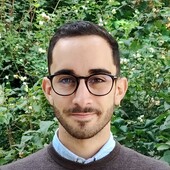
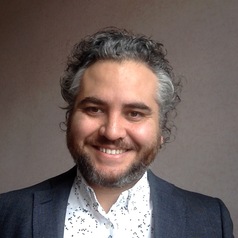
Diego Landivar
Enseignant Chercheur en Economie, Directeur d'Origens Media Lab, ESC Clermont Business School
Diego Landivar est Docteur en Economie (CERDI-CNRS), ancien élève de l’Ecole Normale Supérieur de Paris-Saclay. Enseignant Chercheur au Groupe Esc Clermont. Il a co-fondé le laboratoire Origens Media Lab (www.origens-medialab.org).
Ses travaux portent sur les reconfigurations ontologiques engendrés par la crise écologique et l'avènement de l'Anthropocène. Ses enquêtes portent sur le droit de la nature et des non-humains, les reconfigurations cosmopolitiques dans les pays andins, le statut des objets techniques et les controverses autour de la transition écologique.
Less ![]()


Diego Luis
Assistant Professor of History, Tufts University
Diego Javier Luis studies the colonial histories of Latin America and the Pacific World, race-making, and Afro-Asian diasporic convergences. He is currently finishing a book with Harvard University Press entitled, The First Asians in the Americas: A Transpacific History. The book traces both free and enslaved Asian mobility from the Philippines to Mexico, Central America, Peru, and Spain, from the sixteenth to early-nineteenth centuries. In particular, it examines how Asian subjects encountered and responded to colonial-era racialization with an emphasis on cross-cultural exchanges, social mobility, and resistance to enslavement.
Luis's second project, "The Early Modern Black Pacific: Responding to Global Empire," aims to uncover the early, hidden histories of African diaspora to and through the Spanish Pacific.
Luis conducts archival research in Spain, Mexico, the Philippines, and the U.S.
Less ![]()
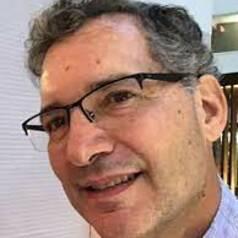
Diego Restrepo
Professor of Cell and Developmental Biology, University of Colorado Anschutz Medical Campus
I am a systems neuroscientist with a background in biophysics. The goal of my research is to understand how brain circuits mediate decision making to complex sensory input. In my lab, we study how sensory processing areas of the olfactory and somatosensory systems handle information relevant to decision-making, and how they interact with downstream regions such as the hippocampus and cerebellum. In addition, we study the circuit basis for behavioral deficits in mild demyelination and neurodevelopmental disorders.
To tackle these questions, we use an interdisciplinary approach employing high-density electrical recording, advanced microscopy, closed loop optogenetics, and computational neuroscience.
Less ![]()

Diego Villar
Marie-Skłodowska Curie Fellow in Anthropology, Ca' Foscari University of Venice
During the last century, the indigenous South American Lowlands have been colonized by steamboats, railways, trucks, chainsaws, fire-weapons and electric generators introduced by missionaries, extractive industries, armies, development projects, and NGOs. However, anthropological and historical research has largely neglected this mechanical colonisation of indigenous life; in particular, there are almost no studies that analyse the current tide of motorcycles that during the last few decades altered dramatically the interethnic landscape, and its social, economic and environmental repercussions which are significantly reshaping current indigenous reality. The goal of my research project is to analyze the effects of motorcycle dissemination among the indigenous peoples of Bolivian Amazonia, and to achieve practical impact regarding public policies on road safety and prevention of accidents in marginal contexts.
Less ![]()

Diego E. Rincon-Limas
Associate Professor of Neurology, University of Florida
Dr. Rincon-Limas received a bachelor degree on Biopharmaceutical Chemistry from the Autonomous University of Tamaulipas in Reynosa, Mexico. He also obtained a Master’s degree in Microbiology and a summa cum laude Ph.D. in Molecular Biology and Genetic Engineering at the Autonomous University of Nuevo Leon in Monterrey, Mexico. He then moved to Baylor College of Medicine in Houston to conduct his postdoctoral training in the Department of Human and Molecular Genetics, where he got training in Neurogenetics and Neurobiology. He got his first Faculty position in the Department of Neurology and the Mitchell Center for Neurodegenerative Disorders at the University of Texas Medical Branch in Galveston, and then moved to the University of Florida to join the Department of Neurology at the McKnight Brain Institute. He has a joint appointment in the Department of Neuroscience and is also a member of the UF Genetics Institute, the Center for Translational Research in Neurodegenerative Disease (CTRND), and the Center for Neurogenetics.
Less ![]()
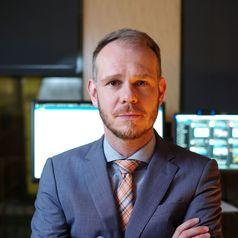
Dietram A. Scheufele
Professor of Life Sciences Communication, University of Wisconsin-Madison
Dietram A. Scheufele is the John E. Ross Professor in Science Communication and Vilas Distinguished Achievement Professor at the University of Wisconsin-Madison and in the Morgridge Institute for Research. Since 2013, he’s also held an Honorary Professorship at the Dresden University of Technology in Germany.
Scheufele’s research deals with the public and political interfaces of emerging science. He is a fellow of the American Association for the Advancement of Science and the Wisconsin Academy of Sciences, Arts & Letters, and a member of the German National Academy of Science and Engineering. He currently serves on the National Academies of Sciences, Engineering, and Medicine’s Division on Earth and Life Studies (DELS) Advisory Committee.
Less ![]()

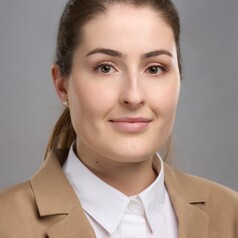
Dilana Rauch
Research associate at the Institute for Industrial Production, Karlsruhe Institute of Technology
Research associate at the Institute for Industrial Production.
Less ![]()
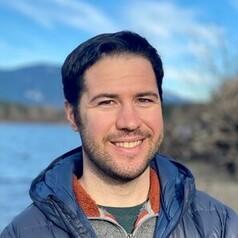
Dillon Amaya
Climate Research Scientist, National Oceanic and Atmospheric Administration
Dillon Amaya is a research physical scientist at the Physical Sciences Laboratory (PSL) of the NOAA Earth System Research Laboratories in Boulder, Colorado. His main interests involve climate variability and change on seasonal-decadal timescales with an emphasis on tropical-extratropical interactions and air-sea feedbacks. His work further includes research into the dynamical drivers behind recent Northeast Pacific marine heatwaves. Dillon's current projects include investigating subseasonal-seasonal (S2S) predictability limits of ocean parameters in the California Current System, with the goal of assisting decision makers responsible for managing sensitive marine ecosystems along the U.S. West Coast.
Less ![]()
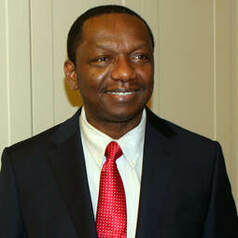
Dilly OC Anumba
Professor of Obstetrics and Gynaecology, University of Sheffield
Professor Anumba is currently Professor of Obstetrics and Gynaecology at the University of Sheffield and has worked as a Consultant Obstetrician and Gynaecologist at Sheffield Teaching hospitals for 22 years. He is Faculty Director of Clinical Academic Training in Sheffield. He serves on the Council of The Royal College of Obstetricians and Gynaecologists of GB as International Representative coordinating Sub-Sahara Africa. He is Honorary Professor of Obstetrics and Gynaecology at the University of Cape Town.
Professor Anumba investigates the physiology of human parturition, particularly the role of immunity and inflammation in term/preterm labour and pregnancy complications such as hypertension, fetal growth restriction and stillbirth. He is also investigating new techniques to predict preterm birth by the detection of cervical remodelling changes as well as changes in the vaginal microbiome and metabolome. He runs specialist clinics in Prenatal Diagnosis and Fetal Therapy, Prematurity Prevention, and High-Risk Pregnancy, all of which have research spin outs. One spin out is ECCLIPPx, a research programme that explores electrical impedance spectroscopy and several other innovative techniques and devices for predicting preterm birth. The NIHR Global Health Research Group on Preterm Birth Prevention and Management in LMICs PRIME is another spin out which brought together interdisciplinary researchers from the United Kingdom and South Africa amongst others to address the challenges of preterm birth management in low-middle income countries where its prevalence is highest.
Less ![]()
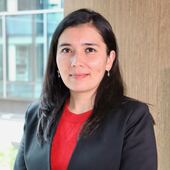
Dilnoza Ubaydullaeva
Lecturer in Government - National Security College, Australian National University
Less ![]()

Dilshad Muhammad
ALMA Fellow at the Arnold Bergstraesser Institute (ABI), University of Freiburg
Dilshad Muhammad is ALMA Fellow at the Arnold Bergstraesser Institute (ABI) in Freiburg, and doctoral student at the University of Freiburg. His doctoral project deals with local governments and the governance of forced migration.
Less ![]()

Dima Nazzal
Director of Professional Practice, Georgia Institute of Technology
Dima Nazzal is a Principal Academic Professional in the H. Milton Stewart School of Industrial and Systems Engineering at Georgia Tech. She is responsible for project-based learning in the Industrial Engineering undergraduate curriculum, including the capstone senior design course, and the cornerstone junior design course. She is also research director of the Center for Health and Humanitarian Systems. Prior to joining Georgia Tech, she was Director of Research and Development at Fortna, Inc., an Engineering Design and Consulting company.
Less ![]()
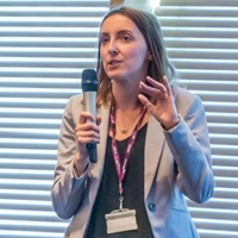
Dimitra Gkatzia
Associate Professor in Computing, Edinburgh Napier University
Dimitra Gkatzia is an Associate Professor at the School of Computing at Edinburgh Napier University. She is interested in the evaluation of Natural Language Generation systems, and data-driven Natural Language Generation (NLG) for low-resource domains/languages. More recently, Dimitra has been interested in exploring privacy issues in LLMs and exploring how we can use them responsibly. Since 2021, Dimitra is the co-lead of the SICSA (Scottish Informatics and Computer Science Alliance) AI Theme. Between 2016-2020, Dimitra served as an elected member of the Steering Board of the Special Interest Group in Natural Language Generation (SIGGEN). At Edinburgh Napier, Dimitra is currently leading the Natural Language Processing Group.
Less ![]()

Dimitri Van Limbergen
Postdoctoral Researcher, Ghent University
I am a Roman archaeologist with an outspoken holistic and comparative approach to my work. My research deals with agriculture and economy, but I specialize in all things related to ancient vines and wines. My focus lies on Italy and the Western Mediterranean from Republic to Empire, but I have conducted fieldwork in Italy, Greece, Portugal and Belgium.
I hold a double PhD in Classical Archaeology from the universities of Pisa (Italy) and Ghent (Belgium), and I have been a postdoctoral researcher at the latter institute since 2015. I was a Fellow of the Academia Belgica (and Belgian Historical Institute) in Rome, the Collegio dei Fiamminghi in Bologna, and the DAI in Berlin, and a Visiting Scholar at Columbia University in the City of New York and Padova University.
My latest work on Roman winemaking in earthenware vessels is scheduled for publication in Antiquity (2024). Recent publications include the edited books Reframing the Roman Economy (Palgrave Macmillan, 2022), Vine-growing and Winemaking in the Roman World (Peeters, 2023) and Methods in Ancient Wine Archaeology (Bloomsbury, 2024). I am a contributor to the upcoming A Cultural History of Wine in Antiquity (Bloomsbury 2024) and The Handbook of Roman Rural Archaeology (Cambridge 2025).
Less ![]()
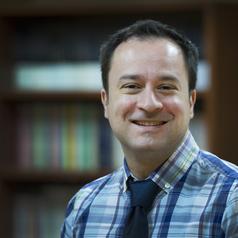
Dimitrios Panagos
Associate Professor, Political Philosophy, Memorial University of Newfoundland
Professor Panagos is a specialist in the study of contemporary political philosophy and Aboriginal rights, with research contributions combining both normative and empirical concerns. He has published work on aboriginality, Aboriginal rights, Aboriginal voting behaviour and resource governance. He is currently working on a monograph on settler states, Aboriginal peoples and the problem of political obligation. he is also engaged in a number of collaborative research projects focused on, first, First Nations and the governance of mineral resources in Canada, and, second, the participation of Aboriginal peoples in elections in Canada and the United States.
Less ![]()

Dimitrios Salampasis
FinTech Capability Lead | Senior Lecturer, Emerging Technologies and FinTech, Swinburne University of Technology
Dr Dimitrios Salampasis is an award-winning global thought leader, educator, researcher, and sought-after keynote speaker, passionate about FinTech innovation and strategy, global affairs and geopolitics, sustainability and emerging technologies nexus.
Dr Salampasis is the FinTech Capability Director, Director, Master of Financial Technologies, and Senior Lecturer of Emerging Technologies and FinTech Innovation at the AACSB-accredited Swinburne School of Business, Law, and Entrepreneurship, Swinburne University of Technology in Melbourne, Australia.
Dr Salampasis is a Visiting Professor of FinTech at the Bahrain Institute of Banking and Finance, Visiting Professor of FinTech at the University of Québec at Rimouski, Canada, Blockchain and FinTech Fellow at the Singapore University of Social Sciences, Visiting Faculty at the School of Management in Fribourg, Switzerland, and an Academic Council Member of the Global FinTech Institute.
Dr Salampasis is a member of the Australian Institute of Company Directors, a Fellow within the Financial Services Institute of Australasia, and a member of the CPA Australia Digital Transformation Centre of Excellence.
Prior to joining academia, Dr Salampasis worked in management consulting, legal services, non-profit and public sector being involved in global advisory activities in research and strategy on emerging market geopolitics and technology policy governance, assisting companies in developing long-term strategic focus and sustainable market business strategies.
Dr Salampasis is the recipient of the 2022 Innovation Excellence Award by the Hellenic Chamber of Commerce and Industry, the 2021 Blockchain Educator of the Year Award by Blockchain Australia and the 2021 Swinburne University Vice Chancellor's Engagement Award - Industry Engagement (Individual).
Dr Salampasis publishes in international peer-reviewed academic journals and books and his work is regularly presented in major international conferences and invited keynote presentations around the world. Dr Salampasis’ research interests revolve around the organizational, human, geopolitical and ESG sides of innovation and open innovation in emerging technologies and FinTech innovation. His areas of specialist expertise, research, teaching, industry engagement, policy and advisory work revolve around the emergence and development of FinTech-enabled business models, Blockchain for business and public sector, corporate sustainability and human rights due diligence, synthetic identity fraud and scams, quantum computing for financial services and public sector, neuromorphic computing for business and public sector, along with the relevant global regulatory, ethical and policy interventions.
Dr Salampasis is regularly involved in advisory work with leading private, public, and governmental stakeholders of the Australian and international FinTech and broader business ecosystem. Dr Salampasis has a strong media presence in Australia and abroad, excellent communication and presentation skills with thought leadership experience presenting at large conferences. Dr Salampasis is regularly providing forward-thinking insights and sound contributions to knowledge networks and communities of practice, furnishing strategic guidance by synthesizing analysis and insights from research across various innovation and emerging technological domains.
Dr Salampasis is a trusted partner to CEOs, C-Level Executives and Board of Directors of leading corporations, start-ups and government officials harnessing the power of emerging technologies to identify solutions that lead global change and impact. Dr Salampasis has been playing an instrumental role in shaping Australia’s FinTech innovation policy and advocacy agenda by participating in working groups, providing expert strategic advice and critical policy analysis, and submitting research-grounded responses to policy consultations.
Dr Salampasis has been actively supporting Australian and international ecosystem stakeholders by identify synergistic opportunities, incubating new strategic opportunities, and curating conversations of policymaking, ESG and regulatory implications and direct impact on business models and organizational transformations.
Dr Salampasis has received international recognition for his global perspective and creative research and thought leadership approach for thinking about innovation, entrepreneurial mindset and the evolution of the emerging and financial technologies landscape, together with, his novel practice-infused curriculum innovation in terms of designing and contextualizing a transformational, industry-relevant and career pathing learning and development experience across multiple modes of delivery.
Dr Salampasis is a dual citizen of Australia and Greece, currently living in Melbourne, Australia.
Less ![]()
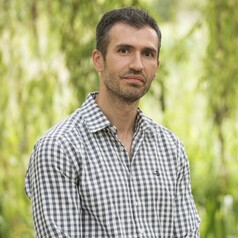
Dimitris Akrivos
Lecturer in Criminology, University of Surrey
Dr. Dimitris Akrivos joined the University of Surrey as a Lecturer in Criminology. His research interests lie mainly at the intersection between criminology, law and cultural studies with a particular focus on violent crime, sexual deviance and mental health (as well as their representations in news and fictional media). His current research looks at the social harm associated with stereotypical gender portrayals in advertising, the press and other popular media. He is the lead editor of Crime, Deviance and Popular Culture: International and Multidisciplinary Perspectives (Palgrave Macmillan, 2019). Dimitris completed his PhD in Criminology at City University London in 2015. He also holds an MA in Criminology (City University London), an MA in Crime Fiction (University of East Anglia) and a Degree in Law (National and Kapodistrian University of Athens). He has previously lectured at the University of Essex, Canterbury Christ Church University and the University of Bedfordshire. He was involved as a data researcher in the Reading the Riots project developed by The Guardian and the London School of Economics. He is a Fellow of the Higher Education Academy.
Less ![]()

Dimitris Papamargaritis
Lecturer in Diabetes and Endocrinology, University of Leicester
I am an NIHR Clinical Lecturer in Diabetes and Endocrinology based at Leicester Diabetes Centre. I have completed my PhD on gut hormone changes after sleeve gastrectomy the most commonly performed bariatric procedure worldwide. My main interests include how to best combine lifestyle pharmacological and surgical treatments for management of obesity and type 2 diabetes. I am also interested in the mechanisms of weight loss weight maintenance and diabetes remission after bariatric surgery and identifying potential treatments for postprandial hyperinsulinaemic hypoglycaemia.
Less ![]()

Dimitris Stamatellos
Associate Professor in Astrophysics, University of Central Lancashire
"Theoretical Star formation & Exoplanets" group. His work is mainly theoretical and computational, focusing on the study of the earliest stages of star and planet formation. He teaches a variety of courses (Astrobiology, Stellar Structure & Evolution, Fluid Dynamics) for the Physics, Astrophysics and Mathematics degrees.
Dr Stamatellos' group performs hydrodynamic simulations of star and planet formation using supercomputing facilities locally at UCLan and nationally. He has published more than 60 refereed publications (19 first author) that have attracted more than ~ 4000 citations. He is well known for his research on disc fragmentation and on brown dwarf formation. He has strong experience in analysing and visualising large amounts of computational data, programming within an astronomical context, developing of computational models, and using high-performance computing. He is particularly interested in computational methods and their applications in astrophysics. He has developed an efficient method to capture the thermal and radiative effects in hydrodynamic simulations, that has been used by other groups around the world (e.g. Edinburgh, St Andrews, Beijing, Sheffield, London, Cologne, Munich). Dr Stamatellos has a strong record of student supervision (undergraduate and postgraduate students) and significant teaching experience. He has also established collaborations with East and Southeast Asian countries (China, Japan, S. Korea, Vietnam). He has been awarded two Royal Society International Exchanges Awards (for Japan and S. Korea).
Less ![]()

Dina Fainberg
Senior Lecturer in Modern History, City, University of London
Dina Fainberg is a historian of US-Russia relations, Soviet media and propaganda, the Cold War. She held research fellowships at the Rutgers Center for Historical Analysis, the Center for the United States and the Cold War at New York University, and the Research Center for East European Studies at the University of Bremen. Dina is the author of Cold War Correspondents: Soviet and American Reporters on the ideological Frontlines, 1945-1991, published by Johns Hopkins University Press in 2021. Together with Artemy M. Kalinovsky she is the editor of Reconsidering Stagnation: Ideology and Exchange in the Brezhnev Era (Lexington Books, 2016).
Less ![]()
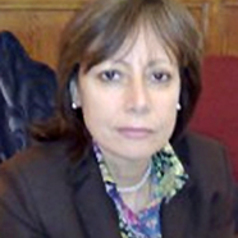
Dina Matar
Professor, Political Communication and Arab Media, SOAS, University of London
Dina Matar is professor of Political Communication and Arab media at SOAS. She teaches and researches on critical issues on global media and communication with a focus on the Global South. She is specifically interested in the intersection of communication and politics, political cultures, communication and conflict/.war, social movements and media; digital activism; strategic communication and gender and media in the Arab world.
She is co-author of the Hizbullah Phenomenon: Politics and Communication (Hurst, 2014) and author of "What it Means to Be Palestinian: Stories of Palestinian Peoplehood (I.B. Tauris, 2010). She is co-editor of "Narrated Conflict in the Middle East (2013) and Gaza as Metaphor (2016). She is also founding editor of the Middle East Journal of Culture and Communication (since 2008) and book series editor of "Political Communication and Media Practices in the Middle East and North Africa (2022) and the SOAS Palestine Studies Series, both published by Bloomsbury Academic, London. She is co-editor of the Media, War and Conflict journal.
She is a fellow of the Royal Society of Arts and a senior visiting research fellow at the LSE Middle East Centre..
Less ![]()

Dinesh Sharma
Dinesh Sharma is an author, consultant, and social scientist with a doctorate in psychology and human development from Harvard University. He is an Associate Research Professor at the Institute of Global Cultural Studies, SUNY Binghamton, where he teaches in Harpur College, Psychology and the Department of Human Development. His current teaching work is focused on Human Rights, Globalization, Leadership and the United Nations.
Sharma also teaches about global leadership and the UN at Fordham University at Lincoln Center.
He is the author of "Barack Obama in Hawaii and Indonesia: The Making of a Global President"and "The Global Obama: Crossroads of Leadership in the 21st Century." He is currently editing a book on Hillary Clinton’s global image, "The Global Hillary: Women's Political Development in Cultural Contexts," due out in June 2016.
Less ![]()

Diogenis Baboukardos
Associate professor in accounting, management control and economics, Audencia
My research interests lie in the broad field of corporate reporting with a particular focus on issues related to sustainability and climate change reporting. My research has been published in various academic journals (such as Journal of Accounting & Public Policy, British Accounting Review, Regional Studies and Accounting Forum) and it has been funded by professional bodies and regulators (such as the UK Financial Reporting Council, the Association of Chartered Certified Accountants, and the Institute of Chartered Accountants of Scotland).
Less ![]()
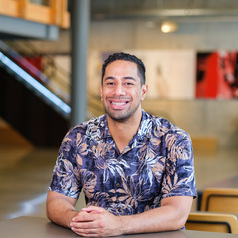
Dion Enari
Lecturer in Sport and Recreation, Auckland University of Technology
Dion Enari is a Lecturer at the School of Sport and Recreation, Faculty of Health and Environmental Sciences at Auckland University of Technology. He also has a PhD from Bond University, Gold Coast with a Master of International Relations and Lefaoali’i (high talking Chief) title from Lepa, Samoa. His research interests include Sport Management, Sport Leadership, mental health, Pacific language, indigenous studies, and trans-nationalism.
Less ![]()

Dionysios Demetis
Senior Lecturer in Management Systems, University of Hull
Dr Dionysios Demetis is a Senior Lecturer in Management Systems at the Hull University Business School and a Visiting Professor at Texas A&M University. He holds a PhD on Anti-Money Laundering and Information Systems from the London School of Economics and Political Science, where he taught classes on Information Systems Management, IS Security and Research Methods. While at the LSE, he contributed widely to a number of research deliverables for the European Union, but most importantly to the domain of Anti-Money Laundering for the Spotlight EU project, as well as the GATE EU Project targeting Money Laundering and Terrorist Financing. His research on the Risk-Based Approach to Anti-Money Laundering and the 3rd EU Directive has been featured in the IMOLIN select bibliography of the United Nations while his research on ‘Data Growth and the Consequences to Anti-Money Laundering’ has won the Emerald Highly Commended Award from the Journal of Money Laundering Control. For his teaching at the London School of Economics, he was awarded the departmental Teaching Assistant award for Outstanding Contribution based on peer review and student feedback from the Information Systems Department in 2006. During his PhD, he secured three consecutive research scholarships from the LSE.
His book on AML entitled ‘Technology and Anti-Money Laundering’ and published by Edward Elgar is the first book to provide a coherent theoretical structure for Anti-Money Laundering research and practice, based on Systems Theory, and the first book to provide an Information Systems perspective on Anti-Money Laundering. With LSE Professor Ian Angell, he co-authored another book that applies second-order cybernetics to uncover deep-seated epistemological paradoxes in science. The book is entitled ‘Science’s First Mistake’, and it is published worldwide by Bloomsbury.
Dr Demetis has a background in Physics from the University of Crete, as well as an MSc from the London School of Economics on the Analysis, Design and Management of Information Systems. Prior to this academic post he was an Adjunct Professor for the California based Thomas Jefferson School of Law (TJSL), where he lectured on the International Compliance and Anti-Money Laundering courses for the university’s online program for about three years. He has also been lecturing for TJSL on Qualitative Research Methodology for both MSc-level and PhD-level students, while advising a number of students in their research. He has given a large number of talks in conferences, and is a regular speaker at Cambridge University at the Annual Economic Crime Symposium.
Less ![]()
- Market Data



















